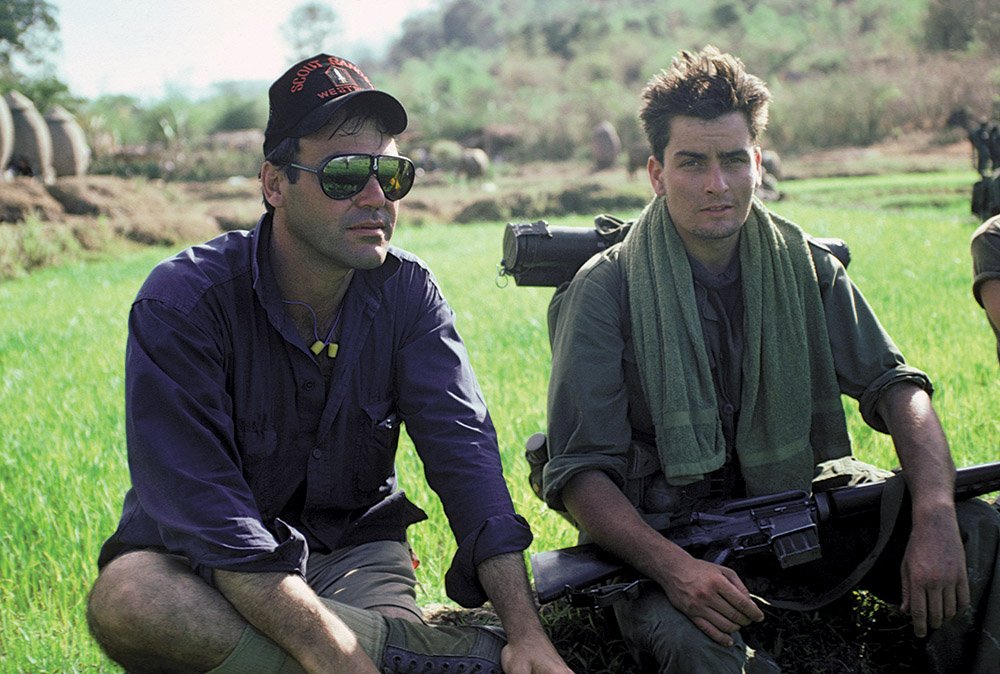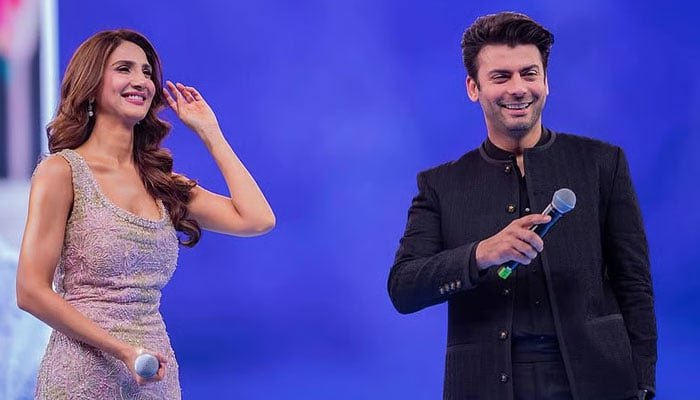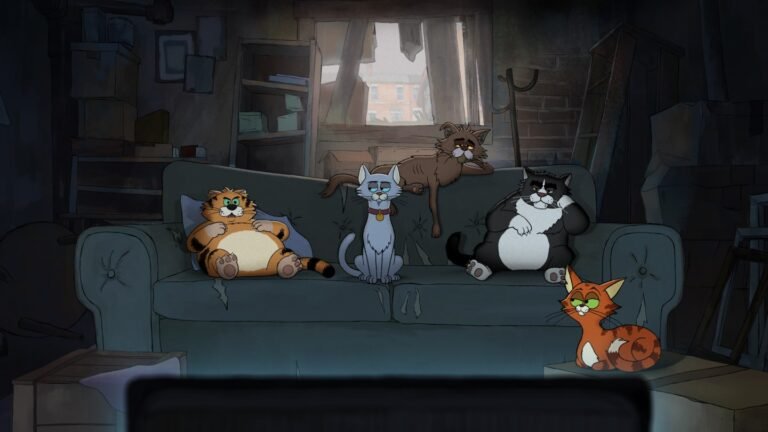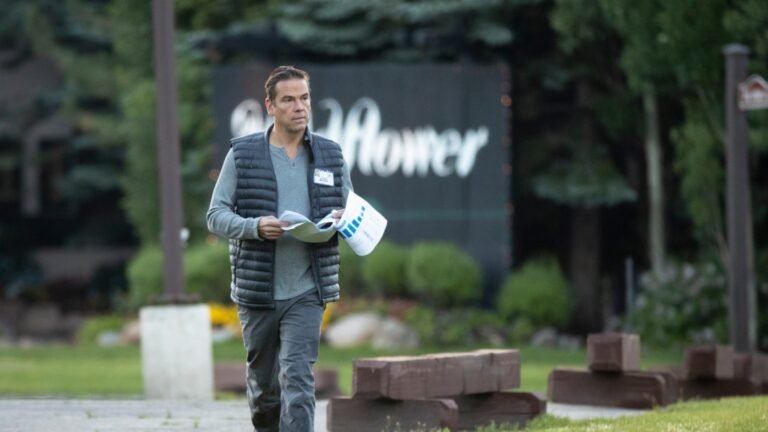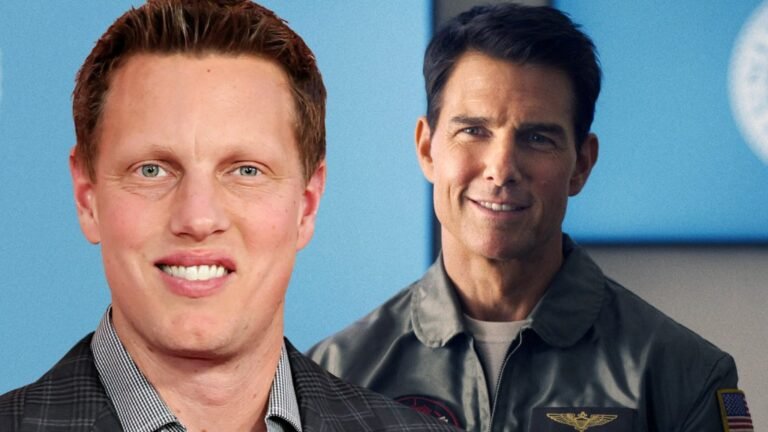Charlie Sheen’s Lifestyle Couldn’t Kill Him. ‘Platoon’ Nearly Did.
I was already pie-eyed when I landed in the Philippines for my second tour. The 15-hour flight turned into a soggy airborne frat party, hosted by Johnny Depp and myself. As thrilled as I was to embrace a solid new friend, I made the mistake of trying to match Johnny booze-wise. That handsome fucker drank…
I was already pie-eyed when I landed in the Philippines for my second tour. The 15-hour flight turned into a soggy airborne frat party, hosted by Johnny Depp and myself. As thrilled as I was to embrace a solid new friend, I made the mistake of trying to match Johnny booze-wise. That handsome fucker drank me under the tray table.
No one had a clue the film we were about to start would become what it did. Upon our arrival at the Manila Garden Hotel, production informed the actors that we’d only be there for two nights. After which they’d ship us out into the bush to go get Method.
In my hotel room and knowing that time was not on my side, I opted to steal a page from the annals of Emilio and Fishburne,¹ circa ’76. Their stories over the years from these magical islands during Apocalypse created so much curiosity, I went ahead and arranged some female company from the concierge.
Those two final nights of freedom were a naked jet-lagged blur on the vodka express to Elysium.
Before any of us Yanks had a chance to gather our bearings downstairs with a hot cup of coffee, the entire cast was corralled into a sterile, overlit room off the lobby to be yelled at for an hour by a very serious man in uniform. The fun was over. We’d just met Oliver Stone’s secret weapon.
Still reeling from the thunder of serious-man’s evisceration, the whole platoon climbed aboard an ancient sweltering bus at 7 a.m. for a bumpy three-hour trip to the middle of somewhere, in the heart of nowhere.
The Philippine jungle at night can feel like the darkest place on Earth. Not knowing if the object four inches from my face was a person, a tree or an animal created a new brand of tension — primal, raw, silent. Those spectral shapes and fears lived within breathing distance every night of our crash-course boot camp for Platoon.
The rigorous preparation experiment was the brainchild of that serious-man-in-uniform: retired Marine captain and decorated Vietnam veteran Dale Dye. (Great guy, I just didn’t know it yet.) When the film was announced, Dye approached Oliver with the pitch that if he wanted maximum realism, a pre-film training camp was the only way to go. He gave Oliver his word that the actors would emerge from his Borstal looking and sounding like real soldiers.
Every hour of every day (and most nights), Dye saddled us with challenges of mind and body. On the more intense body-days, ours were taken to the absolute brink. Humps (military hikes) in 115-degree heat and full gear ranged anywhere between 5 and 15 klicks (military term for kilometers). The only water on a hump was the amount our standard-issue canteens could hold. Mastering the sip became a game of survival.
We were depersonalized by only being referred to as our character names — in the camp, on the set, at the hotel. It left no room for anyone’s ego or diva bullshit. When you suffer as a unit, you bond like one as well. “Camp Dye” was the nickname Depp and I gave that hellscape. This was already making Apocalypse feel like a five-star vacation.

Sheen (right) with director Oliver Stone.
Roland NEVEU/Gamma-Rapho/Getty Images
***
Our base came was a hundred yards across in both directions, with a ravine at the foot of it that led to a dense, unwelcoming tangle. At the top of the clearing sat the only structure in the meadow: a 20-foot military tent command post for the brass to steal shade and study maps — and drink. (“Oorah.”)
One thing our camp never suffered a shortage of was cigarettes.
One person who relied on their steadfast availability was Johnny Depp. Any time there was a breeze, my dirt-hole was downwind from his human Marlboro chimney. Depp began to offer the cigs more frequently; I began to accept them less cautiously. This went on for about a week, with Johnny’s strange glee around it growing by the day. He finally clued me in — he had successfully converted one nonsmoker on each of his previous three films.
Oliver wanted me to smoke for the character. A perfect storm was forming just off my nonsmoking shores, which only added to my dilemma. Depp had his man, Oliver had his character detail, I had the nicotine curse. (When I finally quit smoking on the Fourth of July in 2019, I did the math and figured out that I had smoked 25 miles of cigarettes when lined up tip-to-butt. Thanks, Johnny; should I ever need one, I’ll send you the bill for my new lung.)
The country was in such political upheaval with President Marcos finally out and his successor, Aquino, barely in, the military had split in half — giving rise to bands of guerrilla fighters who struck randomly on a variety of targets. If one of those factions stumbled onto our makeshift base camp, they’d see 30 weathered grunts in army fatigues with M16s, .45s and two belt-fed M60 heavy machine guns. Good luck explaining to them our little movie and fake bullets.
By the middle of the third week, we were moving fluidly as a platoon. Each man fully connected to his responsibilities within the unit. Every piece of equipment we carried, accessed deftly in pitch-blackness if needed. The weapons we toted, from the exotic rocket and grenade launchers to the standard M16 workhorse, became extensions of our senses.
The tension was high as the camp was nearing its end. No one had showered the entire time or had any contact with the people they cared about the most.
I could see and feel a shared frequency of simmer in all of us. I watched Forest W., insane with thirst, as he tried to line up his machete on the fresh coconut he’d found in a grove we had stumbled into. He had so much sweat in his eyes, his vision betrayed him as he reared back and drove the blade downward, straight into his thumb on the steadying hand. The metal against bone was audible. He dropped everything and slammed that hitchhiker into his mouth to stem the bleeding, hoping it was still attached. I watched in horror as two thick red blood-snakes shot out simultaneously from both corners of his clenched lips and all over his boots. It was a fukken mess. All he kept repeating as he pain-danced in a circle: “I knew I was gonna do it, I knew it, I knew it, I knew it.” His manic distress spoke for all of us in that moment.
***

The Platoon cast on location in the Philippines, following weeks of training. Among them: Sheen, Johnny Depp, Forest Whitaker and Kevin Dillon.
Courtesy Everett Collection
Before our “graduation,” we had one last mission: The Final Assault. The platoon was divided into three units, with each group ordered to meet up 15 klicks away at the predetermined coordinates, where an intense simulated firefight would take place. The idea being, we’d have an opportunity to put everything we’d learned in the past three weeks on display — see how we responded in real time, making snap decisions with lives on the line. Dye stressed before we geared up and headed out, single fire only, no weapons set to full auto. Ammo preservation was key.
It played out with [Tom] Berenger’s team arriving first, Lieutenant Wolfe [Mark Moses] and his team getting completely lost and my team being ambushed by the Marines. A lit and fuming smoke grenade came arcing from the tall grass, landing a balls-eye right into my groin. The pain of the impact flung me to the ground, the shock of it sent me past the treetops. Volleys of gunfire erupted all around me. The canister was still wedged in my crotch, off-loading its contents like a homemade Roman candle. I rose up inside the brain of a madman and sprayed the tree line with a full mag of automatic gunfire, screaming: “DIE MOTHERFUCKERS!” Over and over, loud enough to be heard back in Manila. I had reached that place where few return from unchanged.
Platoon was filmed in perfect chronological order. My first day of shooting was the first scene in the movie; the final day of production, my last. It remains my only film experience in 43 years to incorporate that approach. It was a brilliant decision by Oliver. It gifted the actors an opportunity to build a performance in such a way that we never had to remember what had led up to that day’s work or decode how we were supposed to feel about a moment that hadn’t yet happened. As the characters in the story grew weary and emotionally shattered, the actors did as well.
In our story, the main perimeter gets overrun. We become completely outnumbered. The chaos and carnage suffered on both sides is relentless. The massive perimeter-breach takes place at night. Signal-flares of various colors painted the combat action below in a macabre radiance as they floated back to earth. It was an endless three nights, trapped inside a fire-dance of perdition. Francis² and I were in a foxhole by ourselves when it becomes obvious it’s time to vacate the premises. An RPG screams into the hole and blows it to hell, as we barely make it out alive. Exposed and frantic, we drop down into a different foxhole 20 yards away to piece together a final stand.
As I jumped over the sand-bagged ridge of the new hole, I twisted the shit outta my ankle. There were way too many elements in play to stop the take. Bombs going off, flares and tracer-fire in all directions. There’s a time to wave it off and a time to play hurt. On one shaking leg, with “pussy from Malibu” still fresh in my ego, Taylor had crossed over to that place where heroes forget how to die.³
As my gunfire cut down one NVA combatant after another, I ad-libbed, “It’s fucking beautiful, man!!” Francis right alongside me, reaching for and finding dangerous parts of himself he didn’t know existed. Oliver finally yelled, “CUT,” bringing the insanity to a much-needed halt. He loved the dialogue I added, was curious about its origin. I told him it was a direct homage to Tom Cruise, lifted from his movie Taps, when he loses his mind at the end of the film, right before he dies.
The ankle was really starting to throb. Oliver explained that he only needed one more shot from me and Corey — a quick cut when a grenade lands at the lip of the foxhole and blows me down into the mud. I told him I probably only had one take left in me, and the sooner we could do it the better. They set it up, and Oliver yelling “action” was my final memory for the next 10 minutes. I couldn’t push off and left myself too fukken close to the grenade’s iron blast pan.
I woke up to Capt. Dye running a small flashlight back and forth across my eyes. My hearing was flooded, my balance upended. They lifted me outta the hole, Oliver got the shot he wanted. He told me and Corey, “Great work, men,” and cleared us to go get some ice and rest back at the hotel while they stayed behind to keep filming.

A still from 1976’s Apocalypse Now, starring Charlie Sheen’s father, Martin Sheen. The author, about 10 at the time, visited the notoriously chaotic set in the Philippines.
Courtesy Everett Collection
***
I suppose I could describe how much I cried during takeoff from Manila, and what the LAX tarmac tasted like when I kissed it after I landed. I could also take some time to paint a picture of the car ride home with Mom, when I told her I was “now a smoker.” I could do all of that, yet I’m not going to. Because I just did.
Platoon would change everything for me. It picked a fight with fame. The likes of which would spend the next 30 years trying to kill me.
***
FOOTNOTES:
(1) Sheen’s brother Emilio Estevez and Laurence Fishburne shot scenes in Apocalypse Now, starring Sheen’s father, Martin Sheen.
(2) Played by Living Colour frontman Corey Glover.
(3) Sheen’s character in the film, Chris Taylor.
Excerpted from The Book of Sheen. Copyright © 2025 by Charlie Sheen. Reprinted by permission of Gallery Books, an imprint of Simon & Schuster, LLC.

Courtesy of Gallery Books
This story appeared in the Sept. 10 issue of The Hollywood Reporter magazine. Click here to subscribe.

